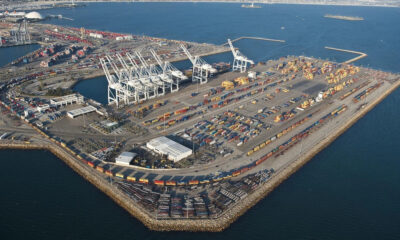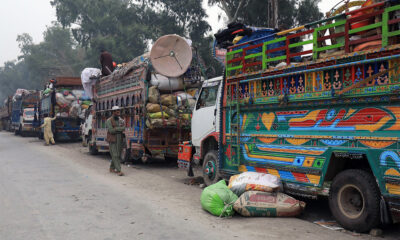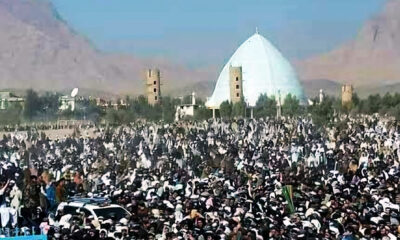Business
Uzbek envoy to Pakistan discusses Trans-Afghan Railway project with Pakistani minister
The Trans-Afghan Railway project is expected to serve as a powerful stimulus for trade and economic integration among numerous countries in the region
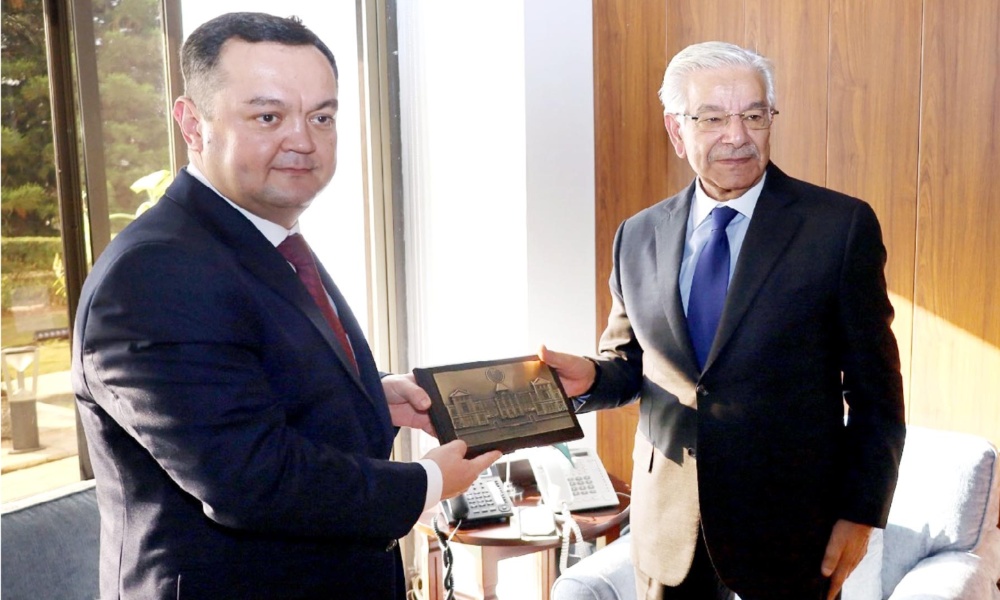
Regional connectivity projects including the Termez-Kabul railway line, the Trans-Afghan Railway, and the multimodal Belarus-Russia-Kazakhstan-Uzbekistan-Afghanistan-Pakistan transport corridor, are key to the region’s success, the Ambassador of Uzbekistan to Pakistan Alisher Tukhtayev said during a meeting with Pakistan’s Defense Minister Khawaja Asif on Friday.
The two officials discussed a range of issues as well as coordinating efforts to ensure stability and deepen economic integration in the region.
Asif however pointed out that Tashkent has become an important hub for regional cooperation, Pakistani media reported Monday.
Special focus was given to the implementation of the Trans-Afghan Railway project, which is expected to serve as a powerful stimulus for trade-economic integration to numerous countries.
The ambassador said the governments of Uzbekistan, Pakistan, and Afghanistan are actively cooperating in the implementation of joint economic and infrastructure projects and one of them is the construction of the Trans-Afghan Railway.
He said the “Termez-Kabul-Peshawar” railway project plays an important role in restoring ties of regional connectivity between Central and South Asia.
He added that once the project is launched, the volume of trade will increase significantly and shipping costs will decrease.
Tukhtayev said the railway connectivity will contribute hugely to regional stability and overall prosperity by aiding Afghanistan’s economic recovery.
He also said the project will facilitate the delivery of Uzbek goods to world markets through Pakistani ports and will open up a new route for Pakistan to export its products to Central Asian, and European markets.
According to him, the Trans-Afghan railway will be able to carry up to 20 million tons of cargo per year, and transportation costs will decrease by 30-35% and timing of deliveries will be cut from two weeks to three to four days.
He also stated that the international cooperation project on the development of the multimodal transport corridor Belarus-Russia-Kazakhstan-Uzbekistan-Afghanistan–Pakistan is being actively promoted.
Business
Efforts underway to expand Afghanistan’s trade relations with India
A number of investors also suggest that the Islamic Emirate should actively participate in regional and trade fairs to increase exports, so that Afghan products can be marketed in regional and global markets.
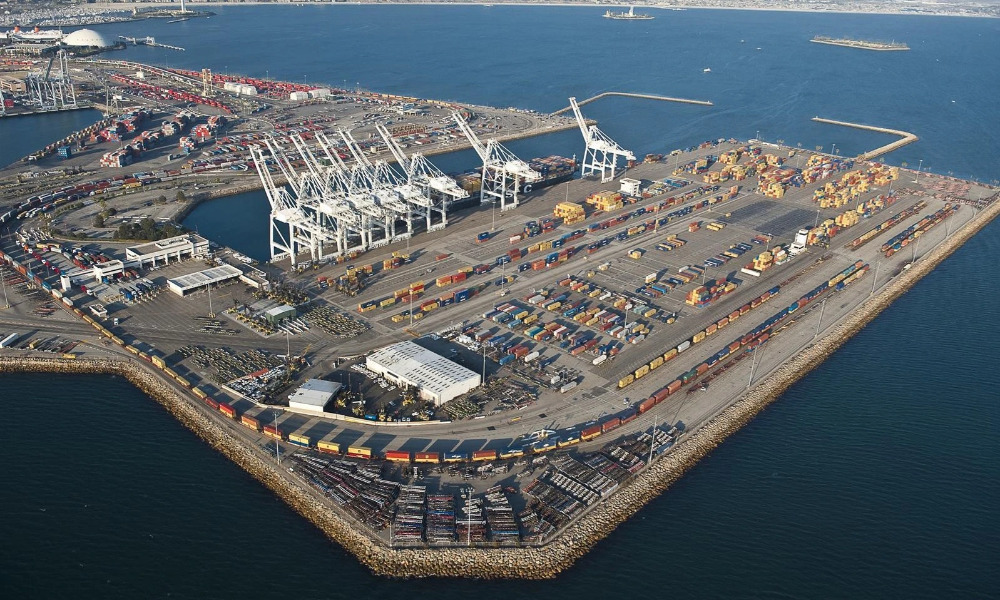
The Ministry of Industry and Commerce says that efforts are underway to expand trade relations with India, the volume of which reaches $650 million annually.
Abdulsalam Jawad Akhundzada, a spokesman for the Ministry of Industry and Commerce, says that India is also interested in expanding trade relations with Afghanistan, and Kabul has also taken steps in this regard by using Chabahar Port, and talks have been held with the Indian side on visas.
The Chamber of Commerce and Investment also says that trade relations between Afghanistan and India are expanding and these relations are strengthening with each passing day. According to officials of the chamber, Afghanistan has exported goods worth $500 million to India in the past year.
A number of investors also suggest that the Islamic Emirate should actively participate in regional and trade fairs to increase exports, so that Afghan products can be marketed in regional and global markets.
According to investors, once the visa issues with India are resolved, a large portion of the country’s fresh and dried fruits will be exported to India because India is a good market for Afghan fruits in the region.
Investors want the Islamic Emirate to pave the way for increased exports to India through Chabahar Port.
Business
36 mining contracts inked over the past year: Mines ministry

The Ministry of Mines and Petroleum says it has signed 36 large and small mining contracts, with a total value of $1.3 billion over the past year.
Officials from the ministry stated that these contracts include 10 large mines, 25 small mines, as well as projects related to cement, salt, marble, and a major gas extraction contract with Uzbekistan, all signed with both domestic and foreign companies.
Meanwhile, economic experts have emphasized the importance of increasing investments in the mining sector for the country’s economic growth. They have stressed that priority in mining contracts should be given to domestic companies.
“It is better to prioritize domestic investors over foreign ones,” said Kamaluddin Kakar, an economic expert.
In the meantime, members of the private sector also stated that if both foreign companies and Afghan investors can partner in the mining sector, this will not only foster investment development in the country but also bring positive changes in capacity building within the mining extraction sector.
Business
Afghanistan ships first consignment to Europe via Khaf-Herat railway
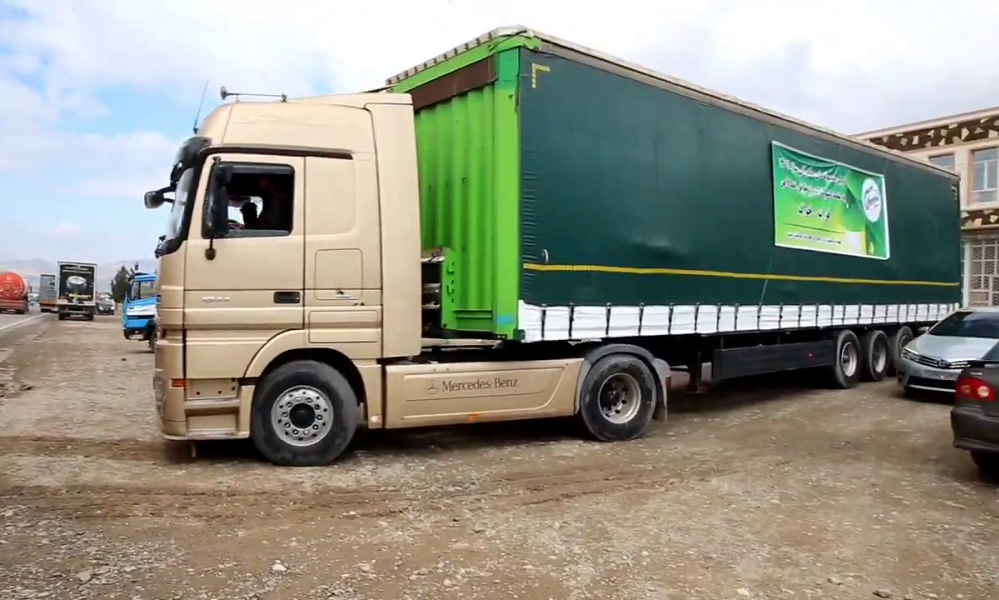
The press office of the Herat governor has announced the export of Afghanistan’s first shipment via the Khaf-Herat railway to Europe.
According to a statement from the office, the shipment includes 200 tons of dried fruits worth $1.2 million, which were exported to Turkey and Europe through the Khaf-Herat railway in the presence of Islam Jar, the governor of this province, and the Iranian Consul General.
The exported dried fruits in this shipment include pistachios, raisins, almonds, and pine nuts.
The statement added that over the past three months, more than 35,000 tons of goods have been transferred via the Khaf-Herat railway.
-

 World5 days ago
World5 days agoSecretive Chinese network tries to lure fired US federal workers, research shows
-

 Latest News4 days ago
Latest News4 days agoAfghanistan has the right to access Amu River’s water: Uzbek minister
-

 Climate Change5 days ago
Climate Change5 days agoUN and ICRC warn of serious water shortage in Afghanistan
-

 Latest News4 days ago
Latest News4 days agoAmnesty international urges Pakistan to halt Afghan deportations
-

 International Sports5 days ago
International Sports5 days agoIPL 2025: Punjab Kings secure thrilling 11-run win over Gujurat Titans
-
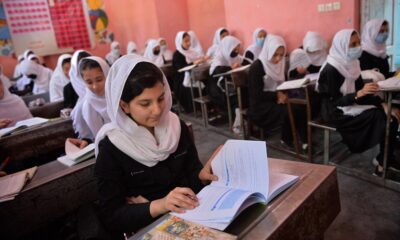
 Latest News4 days ago
Latest News4 days agoUN ‘deeply disappointed’ over ongoing ban on girls’ secondary education
-

 Latest News4 days ago
Latest News4 days agoAfghanistan-Iran-Europe railway corridor activated
-

 Business3 days ago
Business3 days agoAfghanistan ships first consignment to Europe via Khaf-Herat railway





